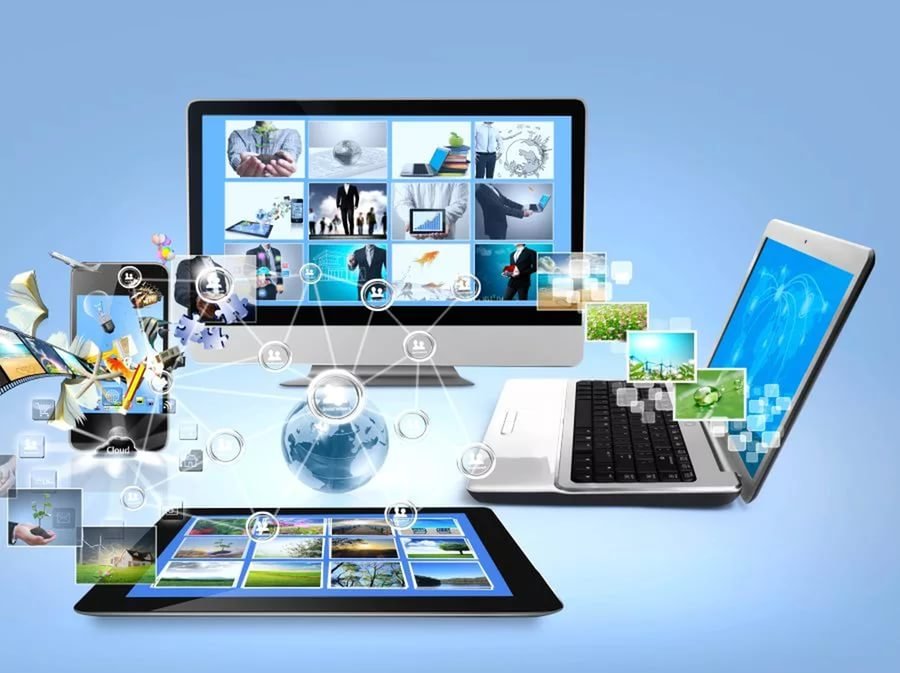To run a business in modern times is no longer the same as it was before. In the era of technology, many routine tasks can be done digitally without any hassle. It does not require a leg or an arm to promote your business anymore. The presence and promotion of businesses in the online world are getting way stronger than one could ever imagine. And indeed, all the credits go-to technology in some way. As it is precise to say, everyone wants to elevate the efficiency of their business, generate more leads, get lots of sales, keep a track of revenue and deliver top-notch products and services. Hence, it is essential to know about the three types of technology in business to hit the market successfully!
What is Business Technology?
Business Technology is a way to organize and coordinate with technology management within an organization. It is an amalgamation of tools, management strategies, and technological governance that aims to use technology in an optimum manner to meet the goals of a business and fulfill the expectations and demands of the customers. There are companies who not only challenge their competitors but also give their best to upgrade their organization while enhancing the perceptions of the clients. With this advancement in the technological sector – it is ensured that business technology runs under the IT sector. It would be more beneficial and bring fruitful results if the IT department collaborate with other sectors of business for their expertise to be available for everyone.
According to intense research by the expert writers of essay mills, the growth of technology is increasing. It is adding importance to the IT services and applications used for daily operations across the globe. In fact, George F. Colony, the CEO of Forrester Research Inc., has exceptionally coined the term business technology. He further suggests replacing IT (information technology) with BT (business technology) as it better defines the need of businesses for technological services and to be able to maintain a strong presence through the use of technology.
Common types of business technology
Here is a list of the main types of technology in business to help you move from traditional techniques to modern-day technologies. It will also aid you to make better use of these technologies.
Computers
Computers are being used in almost every enterprise. They have some tremendously designed software stored in them. It helps the users to do multi-tasking such as working on the emails, designing and executing sales presentations, and above all analyzing financial information. Not only is that but there is various software designed to keep a check on the sales presentations, including, Microsoft Word, Microsoft Excel, Microsoft PowerPoint, and others. Therefore, computers are either available in desktop form or a laptop that is perfect to be used at the office or can be easily carried anywhere.
Networking
Academic writing services in UK have stated in one of their write-ups that “Networking” is to engage with people across the globe. It helps in exchanging information and documents, storing data, and sending emails. It also permits the connection of a printer or storage device between PCs. A network might be restricted to computers in a small office or linked to numerous offices as well. Businesses require networking because it helps them to make links with people in their related industries. The linking process assists to acquire new customers and partners and thriving much better.
Customer Relationship Management
A CRM keeps a record of a customer’s engagements with your business.
From the moment you get details about a client, the CRM system will start monitoring their interactions with you. When a customer calls to purchase a service, to ask for help or discuss his concern, the CRM system will keep track. It will inform when the products were sent, the order details, and any prior conversations the client had with your biz.
Benefits of Business Technology
As we have discussed the types of technology in business – now it is crucial to know the benefits one gets using business technology. Although there are a number of pros you can have while implementing business technology, including:
1. Effective interaction
The biggest plus point is to have a strong connection among your colleagues.
It gets super easy to connect with everyone in the office through different messaging apps or emails.It will be fine to say the world has shrunk to our fingertips!
2. Security concerns
Another important benefit is to have security software updated in your system, and that too on a regular basis. Since cyber-attacks are increasing due to the advancement of technology and hackers’ abilities. This software will keep both your privacy and your computer away from such malware attacks.
3. An increase in the productivity
Technology also helps in increasing the efficiency and productivity of an individual. There are several tools that will not only help in automation but also decrease human errors and constructively increase the work capacity of the organization.
How do organizations make use of these business technologies?
It is essential to have know-how on how can companies use these types of technology in their businesses.
Business technology is the information technology that we use in business sites. It includes the use of computers to receive, send store, and access data. Not only that but it also allows for the execution of the operational tasks.
Usually, there are three ways to deploy business technology while using IT infrastructure. Its uses include,
On-premise IT
Cloud deployment
Third-party hosting.
Conclusion
The collaboration of companies between the business and technology sectors is not optimal. Although everyone clearly knows that it will result in better production outputs. To tackle this, corporate leaders must be able to collaborate effectively inside the organizations. It will provide an assurance that technology management skills will leverage across all business areas. And considering today’s dynamic world, there is a need to build an organization to maximize commercial potential and promote continuous transformation and growth.


